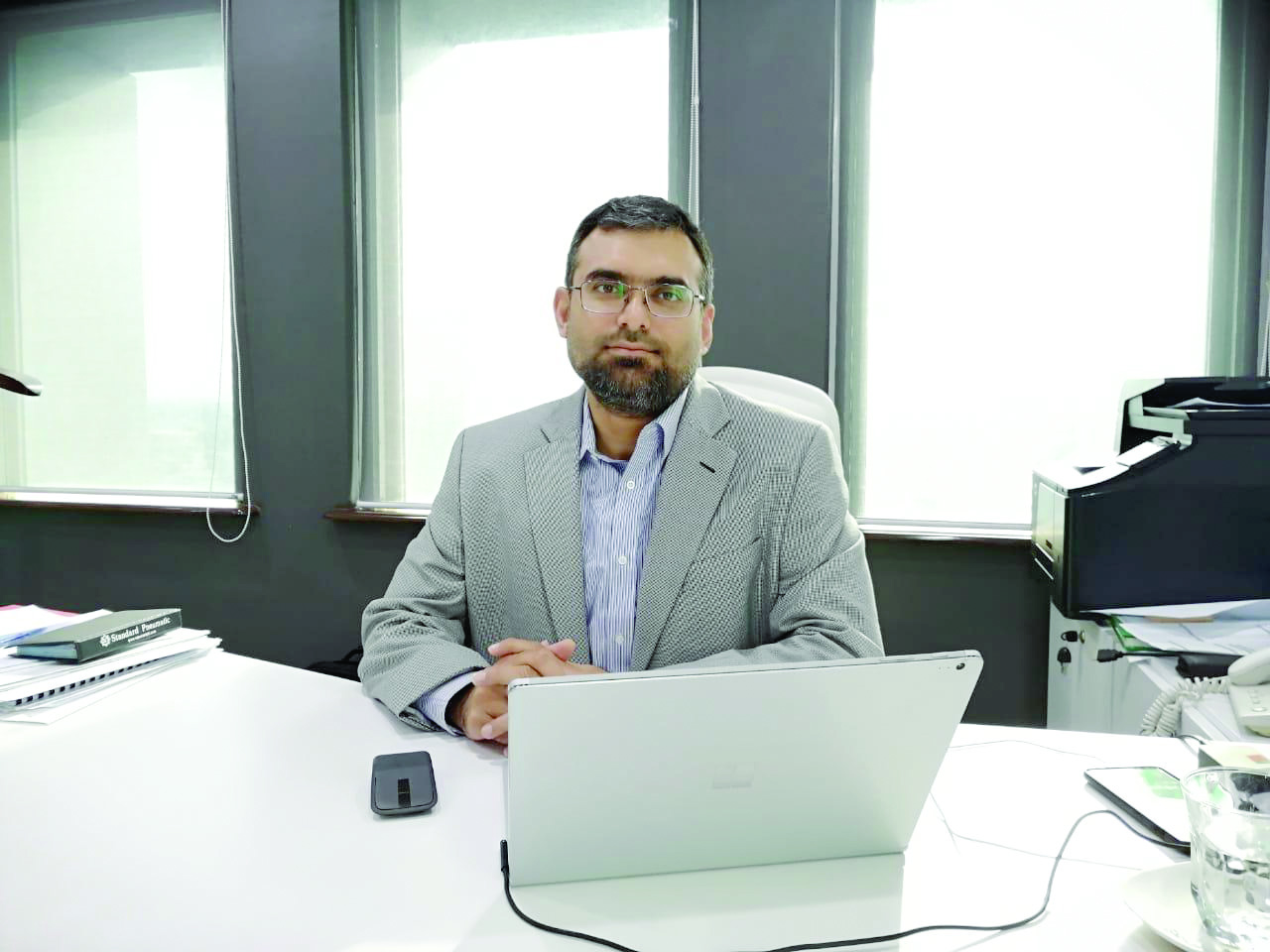
Betting on himself
Zeeshan grew up in a career-oriented family that prioritised education above all. His father was a finance manager in Pakistan International Airlines (PIA) and Zeeshan graduated in Business Management and Technology Management from a university in Turkey after having completed his intermediate education from DJ Science College in 1994. During his time in Turkey, Zeeshan assisted students of computer science at an IT laboratory in Turkey.
National Science and Technology Park gets official nod
Taken by the emerging technological boom, Zeeshan centred his professional choices around the field of IT. After a short stint at the British Council on his return to Pakistan, Zeeshan joined Aptech as a manager, and soon after opened a branch of the institute in Hyderabad. He then worked at the Asia Pacific School of IT for a year.
By 2004 Zeeshan had gained enough experience in the fields of software design, information technology and computer science. That coupled with his education in business administration led him to launch his own company, 10Pearls.
Formative years
Having taken this leap without many savings, Zeeshan set up his office at his house and used the assistance of a student at Aptech to make technological marketing solutions.
In 2009, the company made waves by winning an app development competition for Nokia’s first touchscreen mobile phone - the N8. 10Pearls had developed an application using Nokia’s platform within a month and secured first position.
This led to the company partnering with Nokia and creating applications for media houses in Pakistan.
10Pearls also developed a gaming app for children for a contest by the American telecommunications company, AT&T. The game helped children identify various animals and learn about animal care and protection. This opened the door for 10Pearls to develop games for Marvel Studios and since then, Zeeshan’s company has expanded with numerous global clients and around 450 employees.
Building IT capacity
Today, Zeeshan’s company is among the top 20 software exporters of Pakistan. Having built its foundations here, the company is now registered in the United States of America (USA), and has franchises in Dubai, Virginia, Columbia and Canada. His brother, Imran Aftab, is the CEO and co-founder of the company.
Zeeshan recalls that when his company expanded and new recruits were needed, he soon realised that the average skillset in Pakistan did not meet international standards. He used 10Pearls to provide training and employment opportunities to recent IT graduates with its own university-like curriculum.
Now, there are nearly 5,000 people who have been trained by 10Pearls, and those trainees are now training more graduates with the goal to expand the IT community in Pakistan.
Zeeshan intends to provide more opportunities to the country’s youngsters. He aims to open a centre in Islamabad and is seeking affiliations with universities. The Virtual Lab at NED University, for instance, will be provided equipment by 10Pearls.
The company also has a separate platform - www.pakistanshining.com - which caters to the international community and promotes technical advances, and other positive changes taking place in Pakistan. Zeeshan believes it adds to the soft power of the country if it is presented in a positive light to the global community.
Although the ratio of male to female employees is 70 to 30 at 10Pearls, the company ensures daycare services for employees with children, especially for young mothers, indoor games, a gymnasium and an innovation lab equipped with modern technologies. The company strives to fulfill its corporate social responsibilities and is a regular contributor towards the Empower Foundation (for women and children).
Smart solutions
Zeeshan believes that Karachi has all the qualities required for it to become the technological hub of the country. However, he says, that only 20 to 30 per cent of the IT sector’s potential has actually been tapped in. In his opinion, if the IT curriculum is updated in the country’s varsities, it could be a remarkable source for economic development.
Similarly, Karachi’s potential will increase with the increase in literacy rate and improvement in standards of the education imparted.
The fact that the city houses a number of technological universities, has better infrastructure - on account of being a city - internet facilities, IT equipment and susceptibility towards global IT trends, makes Karachi a site conducive for technological expansion in the country.
The problems of Karachi can also be addressed through machine learning and artificial intelligence, he adds.
Some of the areas which Zeeshan sees improving through technological solutions include civic responsibility - he gives the example of ‘smart dustbins’ which indicate when they are full and need to be emptied - facial identification softwares which could be used to monitor attendance of employees at government offices, devices to identify number plates to address traffic issues as well as street crime, and real estate solutions.
Moreover, says Zeeshan, solutions based on artificial intelligence can also be used for efficient water conservation and the improvement of the health care system.
Untapped resource
Modern technology has made things more accessible for people, he observes. Earlier, it was only persons from a certain socio-economic class, a certain educational background who benefitted from the internet and availed modern technology. Now, the average person uses 3G and 4G on their mobile phones.
K-P Ministry of Science & Technology plans to make govt paperless
With the emergence of 5G, the technological world will shrink down even further and more will be accessible on smartphones.
Zeeshan urges the country’s youth to be more creative in their engagement with technology. While graduates are familiar with how the technology works, says Zeeshan, students are less prone to take the leap towards entrepreneurship. Most prefer financial stability, lack investment incentives, and that keeps them from betting on themselves, he adds.
This story is part of a weekly series that seeks to bring to light the unsung heroes of Karachi - the hawkers, traders, doctors, teachers, engineers, lawyers and daily-wage labourers. It is they who make Karachi the city of lights.
Published in The Express Tribune, October 21st, 2019.



1732105641-0/BeFunky-collage-(78)1732105641-0-165x106.webp)



1732080054-1/Copy-of-Untitled-(48)1732080054-1-270x192.webp)









COMMENTS (1)
Comments are moderated and generally will be posted if they are on-topic and not abusive.
For more information, please see our Comments FAQ